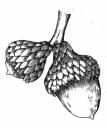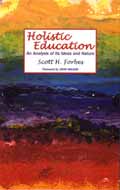|
A Response to Social and Familial Dysfunction from Holistic Education There is widespread concern about the breakdown of families and communities; about increases of neglect and abuse of all kinds; about conflict, isolation; and about the psychological consequences of these. Holistic education has long felt that it should address these issues, and address them in a fundamental way to give young people an opportunity to live without such dysfunction in the families they create and the society they will inherit. In brief, holistic education has contended that education must deliberately help children learn about the nature of society, themselves, and relationships. These are very complex things, full of potential joys as well as sorrow. To not learn about them and then expect to lead a successful and happy life, is as reasonable as not learning about mountaineering and then expect to climb Mt. Everest. Parents, in the main, try very hard to teach their children about their society, themselves, and relationships, but the influence of parents is vastly overshadowed by popular culture as promoted in the media and marketing. The media and marketing portray (and in so doing unconsciously promote) relationships, ways to resolve conflicts, and values that are at odds with what most parents want for their children. Relationships which are the greatest source of both happiness and misery for all of us are too often portrayed superficially in popular culture, as caricatures or comic book versions of real relationships. Adults in the media who are presented as immature are seen as funny or endearing. Children who are unnaturally precocious are seen as heroes or icons. The real sensitivities and depths of perception required to meet the complexities of relationships are rarely presented. Conflicts in the media are rarely resolved through negotiation or developing larger understandings; force and violence are normal, and are thereby normalized. If popular culture is, in fact, the major source of most people's learning about how to live life, it would seem we are being trained to have dysfunctional families in dysfunctional societies. From reading our newspapers, it would appear that the training is working. Values are deliberately manipulated by marketing. Children are "targeted" by experts; a phrase that should itself be worrying. This is usually accomplished by targeting the self-image of children, and this occurs at a time when the sense of self is being formed and is at its most vulnerable. This pressure on children's self-images leads to insecurity, and yet we know from research that children need security for healthy development and learning. We know from reams of research that childhood insecurity often produces psychological wounds that are very difficult to heal, and childhood pathologies (which are on the rise) are a source of social and familial dysfunction in adults. Brutality, not just physical but emotional and social as well, seems commonplace. Peer groups become enforcers of values (like being "cool") that stem from the popular culture rather than healthy traditions or forms of wisdom. As a consequence, children learn to act for the sake of appearances and not authenticity; for presentation rather than substance. Such appearances and presentation are in themselves another source of insecurity as they are always fragile and carry with them the constant threat of exposure for the falsities they are. This is a very dysfunctional position for children to find themselves in and to try to maintain. Holistic education has maintained that children need to actively and deliberately learn about relationships and values. Both must be discussed and examined in the classroom. Relationship dynamics that emerge must be addressed, not for the sake of "correcting" them, but for the sake of learning about relationship. Values, all values, need to be explored and questioned. Children should not be inculcated with values, but they should be helped to find values that are deep and complex and that will sustain them in the moral dilemmas that are part of everyone's life. While both relationships and values are worthy of study in their own rights, and not as adjuncts to other subjects, holistic education has maintained that these lessons need not be separate from lessons of literature, history, etc., but that the various academic disciplines are wonderful areas for exploring these dynamics in children's lives. Such an approach also keeps lessons meaningful to children. |
The
highest function -J. Krishnamurti Book Review
by |

